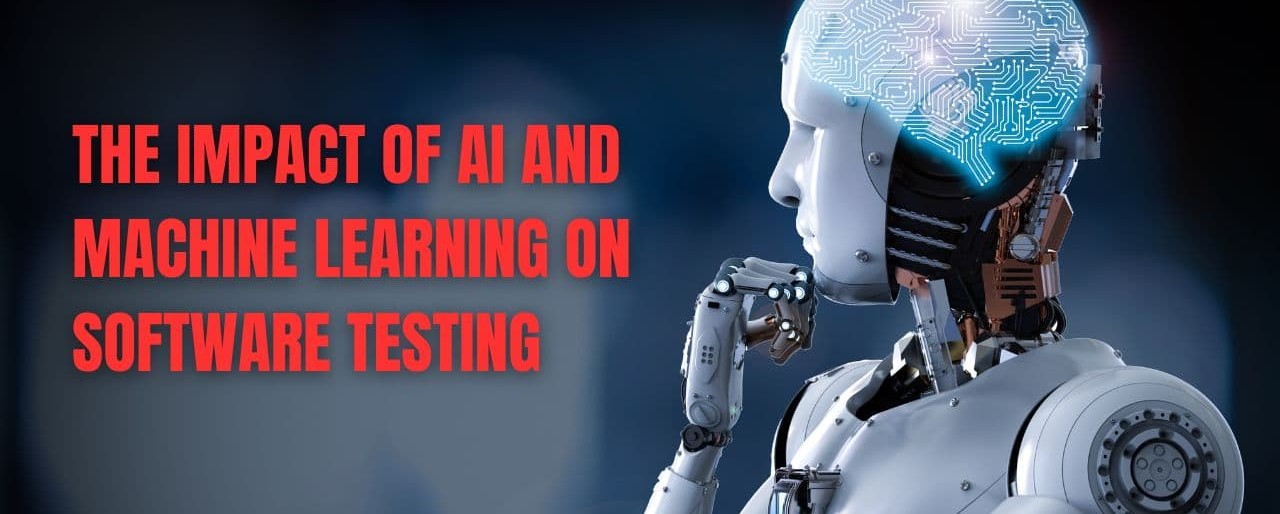Software development is a fast-paced industry, therefore making sure software programs are reliable and of high quality is crucial. Software testing plays a critical role in this process, allowing developers to identify bugs, defects, and vulnerabilities before the software is released to end-users. Traditionally, software testing has been a manual and time-consuming process, often prone to errors and inefficiencies. However, the emergence of artificial intelligence (AI) and machine learning (ML) technologies has revolutionized the field of software testing, offering innovative solutions to improve efficiency, accuracy, and effectiveness. Learn From Edure.
Evolution of Software Testing
Traditional methods of software testing relied heavily on manual input and analysis, making it a labor-intensive and error-prone process. While automated testing tools helped streamline some aspects of testing, they still had limitations in terms of adaptability and scalability. AI and ML technologies have ushered in a new era of software testing by introducing intelligent algorithms that can learn from data, identify patterns, and make informed decisions.
What is AI and Machine Learning?
Artificial Intelligence (AI)refers to the development of computer systems that can perform tasks that typically require human intelligence, such as problem-solving, decision-making, and speech recognition. Machine Learning (ML), a subset of AI, focuses on developing algorithms that can learn from data and make predictions or decisions without being explicitly programmed.
The Intersection of AI, Machine Learning, and Software Testing
AI and ML technologies can be applied to various aspects of software testing, transforming the traditional testing process into a more efficient and effective one. Some of the key applications of AI and ML in software testing include:
- Intelligent Test Case Generation: Using AI algorithms to analyze code and automatically generate comprehensive test cases.
- Enhanced Bug Detection: Leveraging ML models to detect and diagnose bugs in software applications more efficiently.
- Adaptive Test Automation: Employing AI technologies to dynamically adjust test scenarios based on real-time data, ensuring comprehensive test coverage.
- Predictive Analytics for Risk Assessment: Using historical data and machine learning models to predict potential risks and issues in the software development lifecycle.
- Intelligent Test Prioritization: Utilizing AI algorithms to prioritize test cases based on factors such as code complexity and critical functionality.
By integrating AI and ML technologies into software testing processes, organizations can accelerate the test cycle, improve the accuracy of test results, and ultimately deliver higher-quality software products to end-users.
Benefits of AI and Machine Learning in Software Testing
The adoption of AI and ML in software testing offers several advantages, including:
- Faster Test Case Generation: AI algorithms can quickly generate test cases based on code analysis, reducing the time and effort required for manual test case creation.
- Improved Bug Detection: ML models can identify bugs and defects more accurately and efficiently, enabling faster bug fixes and a more reliable software product.
- Enhanced Test Coverage: AI technologies can prioritize test cases based on risk levels and critical functionality, ensuring comprehensive test coverage across the software application.
- Predictive Analytics: By leveraging historical data and machine learning models, organizations can better predict potential risks and issues, allowing for proactive risk mitigation strategies.
- Improved Efficiency: AI and ML technologies streamline the testing process, reduce human error, and free up testers’ time to focus on more critical tasks, ultimately increasing the efficiency of the testing process.
Case Studies
Several companies have successfully implemented AI and ML technologies in software testing, resulting in improved testing efficiency and software quality. For example, Microsoft has incorporated AI-based tools in its testing process to enhance bug detection and prioritize test cases, leading to a more robust software development lifecycle. Similarly, Google has utilized machine learning algorithms to automate test case generation and optimize test coverage, improving the overall quality of its software products.
The Future of Software Testing with AI and Machine Learning
As AI and ML technologies continue to evolve, the future of software testing looks promising. Predictions for the future include:
- Enhanced Test Automation: AI-powered automation tools will further streamline the testing process, enabling organizations to achieve higher test coverage and faster time-to-market.
- Advanced Bug Detection: ML algorithms will become more sophisticated in detecting bugs and defects, leading to more reliable and robust software applications.
- Continuous Improvement: AI and ML technologies will enable continuous improvement in the testing process, with tools learning from past test results and user feedback to optimize test scenarios.
Conclusion
The integration of AI and machine learning technologies in software testing has significantly impacted the way testing is conducted, offering innovative solutions to enhance efficiency, accuracy, and effectiveness. By leveraging these technologies, organizations can accelerate the testing process, improve bug detection rates, and deliver high-quality software products to end-users. As AI and ML technologies continue to advance, the future of software testing holds immense potential for further transformation and improvement, ultimately shaping a more reliable and efficient software development lifecycle. Know more with Edure Learning.

